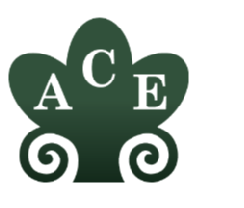Virgil's Aeneid
Video Resources
Recorded at our 2019 Class Civ Teachers Day, here Prof. Victoria Rimell leads a session on Teaching the Politics of Virgil's Aeneid and identifies useful questions for drawing out debate on the politics and reading of passages from the Aeneid. A handout can be downloaded here, along with Prof. Rimell's PowerPoint Presentation.
#AskAnAcademic: Dr Elena Giusti - Aeneid Part One: the Aeneid and Aeneas
#AskAnAcademic: Dr Elena Giusti - Aeneid Part Two: Dido
ACE Teaching Resources

Here at WCN we are proud of our association with ACE (Advocating Classics Education) and are pleased to be able to host their teaching resources here on the WCN site.
As part of their Classical Civilisation Teachers’ Summer School, held at King’s College London, ACE has prepared a series of introductory talks, delivered by leading academics and tailored specifically for the GCSE and AS/A-level Classical Civilisation syllabi.
The resources here are divided according to syllabus, but you can find the complete teacher resources from ACE and their Class Civ Teachers events via this link. You can find out more about the remarkable work of ACE on their dedicated website.
Other Resources: PowerPoint
The Aeneid
[Source: BBC Radio 4 - In Our Time]
Melvyn Bragg and guests discuss 'The Aeneid'. Out of the tragedy and destruction of the Trojan wars came a man heading West, his father on his back and his small son holding his hand. This isn't Odysseus, it's Aeneas and in that vision Virgil gives an image of the very first Romans of the Empire.Virgil's Aeneid was the great epic poem that formed a founding narrative of Rome. It made such an impact on its audience that it soon became a standard text in all schools and wiped away the myths that preceded it. It was written in Augustus' reign at the start of the Imperial era and has been called an apologia for Roman domination; it has also been called the greatest work of literature ever written.How much was Virgil's poem influenced by the extraordinary times in which it was written? How does it transcend the political pressures of Imperial patronage and what are the qualities that make it such a universal work?With Edith Hall, Leverhulme Professor of Greek Cultural History, Durham University; Philip Hardie, Corpus Christi Professor of Latin at the University of Oxford; Catharine Edwards, Senior Lecturer in Classics and Ancient History, Birkbeck College, University of London. [Text from BBC]

